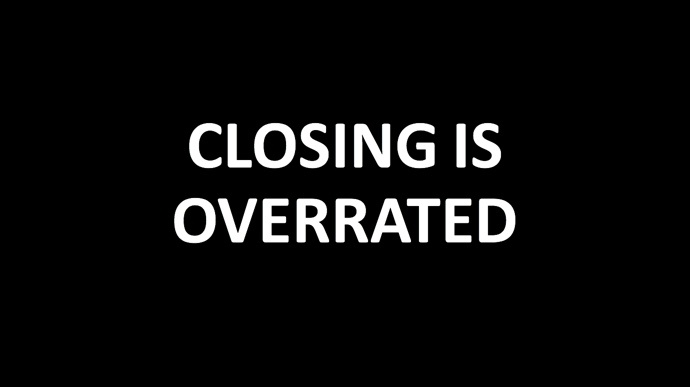Closing Skills
-
Only 11% of All Salespeople Do This at the End of a Sales Call
- December 2, 2019
- Posted by: Dave Kurlan
- Category: Understanding the Sales Force

Traditions are important. They ground us, give us a sense of stability and purpose, and provide something that we can look forward to. Rituals are like traditions in that they serve the same purpose, but occur much more frequently. Selling, is filled with rituals, from the sales process we always follow, to those specific questions we always ask to those specific talking points, comparisons, and stories we always share. Why? They work!
So it is with that sense of tradition that for the 10th consecutive year, I republish my Nutcracker article which is always the most popular article each December.
-
Data Shows 1st Year Sales Improvement of 51% in this Competency
- September 18, 2018
- Posted by: Dave Kurlan
- Category: Understanding the Sales Force

I looked at the before and after scores for eight of the 21 Sales Core Competencies as well as the Reaches Decision Makers, Account Manager and Farmer competencies for a total of 11. See the table below:
-
How the Cheesecake Factory Menu Can Make You a Better Closer
- September 13, 2018
- Posted by: Dave Kurlan
- Category: Understanding the Sales Force

Have you ever visited a Cheesecake Factory? I LOVE the menu – they offer EVERYTHING. The downside is that because there are so many items to choose from, it’s difficult to decide what to order. That’s better than the options you have with my Blog.
-
12 Reasons They Didn’t Like You Enough to Buy From You
- July 28, 2017
- Posted by: Dave Kurlan
- Category: Understanding the Sales Force

You worked hard and smart, thought you did a great job, expected to win the business, but didn’t. Later, you learned that the prospect “Didn’t really like your style.”
It’s not at all unusual, but it is almost always misinterpreted. Salespeople tend to take this personally by internalizing the comment as, “They just didn’t like me. But why?”
-
Sales Excellence: How to Close Anything and Everything in Any Vertical
- January 30, 2017
- Posted by: Dave Kurlan
- Category: Understanding the Sales Force

I am going to share the real truth about closing and it’s quite different from what you’ve read, what you’ve listened to, what you’ve watched, and probably from what you’ve practiced. Countless books, tapes, videos and podcasts have been devoted to closing techniques. Thousands of companies deliver seminars and training programs to help salespeople develop their closing skills. They’re all wrong and they have all wasted your time.
I have written 1,600 articles and not once have I shared the closing secret that I am about to share in this article.

